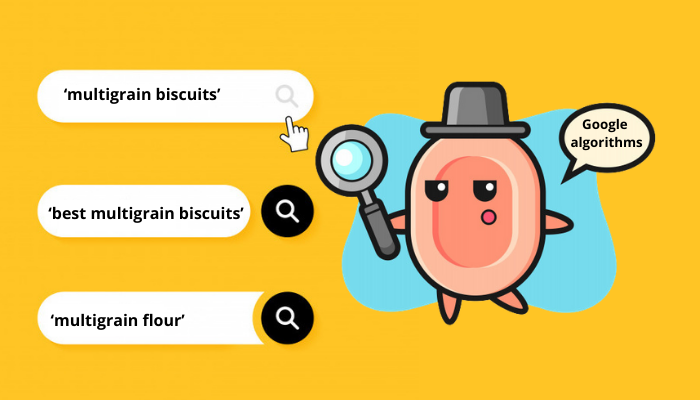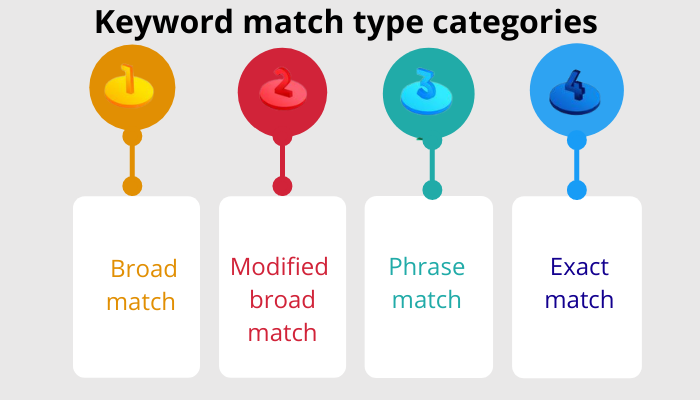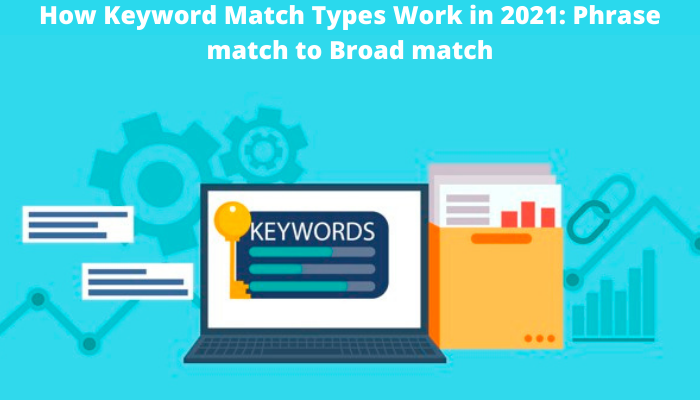Presently, we are living in the world of uncertainty, especially when it comes to businesses. Irrespective of the industry, size, and scope, every business has been hit by the pandemic and global lockdowns. This multifaceted blow has made marketing more critical and complex for the business. Businesses are increasingly leveraging the power of online media to break all boundaries and take their brands to global audiences.
In today’s times when businesses are adapting to a multi-channel marketing strategy with a primary focus on online platforms, paid Google ad campaigns are one of the pivotal elements of the marketing strategy for lead generation. The investments in paid ad campaigns and expectations of greater returns have increased like never before.
One of the factors that dominantly impact the success of such paid campaigns is finding and utilizing the right keywords. Companies spend a significant amount of time and resources on discovering the right keywords. However, the task is much easier said than done. Most often the efforts go in vain.
The reason for such unexpected failure despite making efforts is the keyword match types. You can also seek assistance from companies like Bizprospex to unearth and implement the best keywords at the right time for assured ROI. Such companies lend professional services with extensive data mining and data scrubbing to find the words and phrases that would work for your specific campaigns.
Whether you choose to team up with professionals experts in market research or assign the task to an in-house team, knowledge about the keyword match types and how they work help you make more informed decisions and attain better yields.
Understanding the basics of keyword match types

Keyword match types are means to convey the Google algorithms the extent to which you would like your ads to match the keyword. They allow you to describe how restrictively or aggressively your ad should be matched with the Google searches made by the users.
Let us understand it with an example. Consider a company that sells multigrain biscuits. It would have a set of keywords to market their product with ‘multigrain biscuits’ being one of them. This keyword can match with several search queries to show up your ad.
‘best multigrain biscuits’, ‘multigrain biscuits online’, ‘multigrain flour’, ‘multigrain dog biscuits’, ‘multigrain snack’, are some of the searches the keyword would match with. While many of them are relevant, some, like ‘multigrain dog biscuits’ and multigrain flour’ are completely irrelevant.
These searches are would bring irrelevant traffic to you and result in wastage of the campaign budget. Using keyword match types effectively will lend you command over the search queries and will help you target only the audience that is interested in your product. You can define the queries that would trigger your ads to show up.
Keyword match type categories and how each of them works

Creating a Google ad is a combination of knowledge, skill, creativity, and research. For every ad that you create, researching for a set of the right keywords is imperative. These keywords describe your product or service and help you establish what searches your ad should show up for.
Based on the amount of restriction imposed on matching and the control you have on the way matching is performed, Google provides you with four keyword match types.
-
Broad match
Broad match type takes your ads to the widest range of audiences. This is the least restrictive type and gives you minimum control over the match. It is also the default match type that would trigger your ad of any word or words in the search query match with a word in your keyword, irrespective of the order.
Although it reaches the largest audience and triggers your ad for maximum search, it often results in irrelevant and unproductive results. With no targeting, your marketing budget is mostly wasted and ROI is much lesser than expectations.
Considering the above example, ‘multigrain dog biscuit’ and ‘multigrain biscuits for pets’ are examples that clearly show the destruction, board match type can cause to your campaign.
There are millions of people who search for ‘dog food’, or ‘pet food’ who can end up clicking on your ad. These are not at all relevant prospects for you but can significantly increase the marketing cost.
-
Modified broad match
This match type no longer exists for Google ad campaigns. However, for a comprehensive understanding of how the whole concept works and enhancements introduced, it is important to know about every type and its differences. For that reason, we have included this type in the discussion.
Modified broad match type combines the features of the broad match and other more restrictive matches. You are given more control over what search queries will trigger your ad and which will not.
The control is exerted using the ‘+’ parameter. You can place this parameter in front of any term or terms in your chosen keyword. This is an indication to the Google algorithms that the term preceded by the ‘+’ is mandatory for a match. Meaning, only the search queries that essentially have that term will trigger your ad.
This small addition results in a big difference in the quality of leads you get from your ads. Modified broad match type also allows you to reach a wide audience with greater control. It forces Google to result in a match only for the searches that are closer to your keywords and steer more relevant traffic.
-
Phrase match
Phrase match is more restrictive yet versatile to some extent. To implement phrase match you can define a phrase in your keywords that must match to trigger your ad. The algorithms then look for those phrases with the words in the exact same order to generate a match. However, the match is flexible in what precedes and follows the defined phrase.
Considering the previous illustration, if you specify the phrase ‘multigrain biscuits’, searches like dog food, pet food, ‘multigrain dog biscuits’, and multigrain flour, which are completely irrelevant will not result in your ad.
Search queries like ‘multigrain biscuits reviews’, ‘best multigrain biscuits’ will be included in the match and will trigger your ads.
As compared to the board match, this type gets a lesser number of leads but significantly improves the quality of B2B lead generation.
-
Exact match
As the name suggests, this is the most restrictive match of them all. You specify the exact phrase you want to trigger your ad. The user must type that phrase with all the words in that very order to see your ad.
Taking the previous example forward, if you specify ‘multigrain biscuits’ as the keyword, the phrase match will look for only these words in that order. This means search queries like ‘multigrain biscuits review’, ‘multigrain snacks’, ‘healthy biscuits’, ‘weight loss biscuits’, etc will be omitted from the match list.
Although this match type delegates maximum control and ensure only good quality leads, it considerably limits your reach. However, Google has recently added some flexibility to exact match type by allowing some variations such as synonyms and plurals to result in a match. In the previous example, a search for ‘multigrain cookies’ would result in your ad show up.
How the modifiers for phrase match and broad match have recently changed
Recently, in February 2021, Google introduced significant alterations in phrase match and broad match modifies for keyword matching. The changes were to bring more flexibility to the phrase match so that it can target a wide range of audiences and continue to steer more relevant and high-quality traffic.
The results of both the match types are now more driven by the semantics instead of the syntax. Both the phrase match type and board match type will have nearly the same behavior.
The two will trigger your ads if the meaning of the keywords you have specified is found in the search queries instead of focusing on the exact words. Also, the order of the words will be considered to make the call only when it is impacting the meaning of the keyword phrase.
Implementing keyword matches in your campaigns
Now, when you have ample knowledge and understanding of different types of match modifiers and how they work, you can go ahead to launch your ad campaign with effective keyword selection and implementation.
You can form your keyword list here and use modifier symbols to specify the match type for each one of them. You can use square brackets [ ] for an exact match, quotation marks “ ” for phrase match, and a plus sign + for modified broad match. With this easy-to-use interface and proper understanding of the type match, you can remarkably elevate the effectiveness and outcomes of your ad campaigns.
Conclusion:
Today, when the entire global market is in a scuffle to get out of the crunch and bounce back, the amount of time, effort, and money you spend on marketing must generate good ROI.
Businesses must continuously optimize the way they use the Google match types for their ads to ensure reaching relevant target prospects and avoid unnecessary spending on unfruitful clicks.
Bizprospex is constantly helping its clients to achieve the most from their marketing initiatives by utilizing its data appending services, email appending services, PEP Lists, Aml sanctions lists, global sanctions database, skip tracing services, data scraping and data verification blended with deep market research to understand the target audiences and finding the right keywords.
